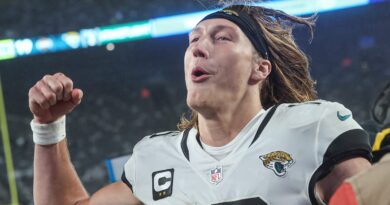Employer risk after holiday party ends – The San Diego Union-Tribune
Employers are hosting in-person holiday parties again after a one-year break. These parties benefit employers by boosting employee morale, strengthening ties between employees, and reinforcing the employer-employee bond, critical in today’s tight labor market. Alcohol is often served.
It is partly because the employer benefits from holiday parties and the drinking of alcohol at those parties that employers may be liable if an employee’s alcohol consumption at the event later contributes to an accident that injures a third party. An employer may be liable even if the accident occurs after the employee arrives home safely and later, while still intoxicated, drives another employee home.
That was the ruling of the San Diego division of the California Court of Appeal in the 2013 case of Purton v. Marriott Internat., Inc.
The facts
Michael Landri was a bartender at the Marriott Del Mar Hotel. Landri allegedly got drunk at the holiday party Marriott hosted to thank its employees in December 2009. Attendance was voluntary.
Landri had a couple of drinks before going to the party and drank at the party, including from a flask filled with bourbon he brought to the party. A manager bartending at the party allegedly refilled that flask at least once from the hotel’s liquor stock. After arriving home safely, Landri left his home to drive a coworker home. On that drive, Landri struck another car, killing its driver, Dr. Jared Purton. Landri received a six-year prison sentence after pleading guilty to gross vehicular manslaughter.
Dr. Purton’s parents sued Landri, Marriott, and others for wrongful death. The trial judge dismissed the action against Marriott because he found that Landri was not acting within the scope of his employment when the accident occurred. Plaintiffs appealed.
The court of appeal reinstates the Purtons’ claim against Marriott
The court of appeal reversed.
An employer generally is liable to others for foreseeable injuries caused by its employees where the acts are within the course and scope of the employee’s employment. This vicarious liability arises from employee acts that are of conceivable benefit to the employer or, absent that, from acts that are a customary part of the employment relationship. “Thus,” said the Purton court, “an employer’s vicarious liability may extend to the employee’s negligence, willful and malicious torts, or acts that contravene an express company rule and confer no benefit to the employer.”
The court of appeal decided a jury could find Landri was acting within the scope of his Marriott employment by drinking at the party for two distinct reasons. First, a jury could find that the holiday party and the drinking of alcohol there “benefitted Marriott by improving employee morale and furthering employer-employee relations.”
Second, a jury could find that the employees’ alcohol consumption at the party was a customary part of their employment. The court cited evidence that Marriott impliedly allowed employees to drink on the job, did not enforce its announced plan to limit employee alcohol consumption to two drinks per person at the party, and did not limit the alcohol it served to beer and wine.
Marriott argued that exposing it to liability for an accident that occurred after Landri had arrived home safely would mean “any employee drinking alcohol at his or her place of employment or employer’s party must be escorted home and kept there by such escort, in violation of his or her personal privacy and liberties.”
But that argument, said the court, ignores that Marriott “created the risk of harm at its party by allowing an employee to consume alcohol to the point of intoxication.” The court continued: “Marriott could have lessened this risk in numerous ways such as having a policy prohibiting smuggled alcohol, enforcing its drink ticket policy, serving drinks for only a limited time period and serving food. Alternatively, it could have eliminated the risk by forbidding alcohol.”
The lesson
An employer that offers alcohol at its holiday party should take steps to limit the amount of alcohol each employee consumes or to ensure employees do not drive after the party. A holiday party without guardrails on alcohol consumption is a party without guardrails on an employer’s potential liability should tragedy ensue in its aftermath.
Dan Eaton is a partner with the San Diego law firm of Seltzer Caplan McMahon Vitek where his practice focuses on defending and advising employers. He also is an instructor at the San Diego State University Fowler College of Business where he teaches classes in business ethics and employment law. He may be reached at eaton@scmv.com. His Twitter handle is @DanEatonlaw


